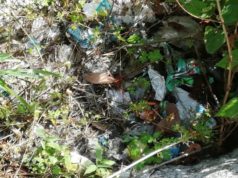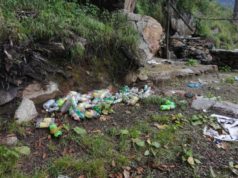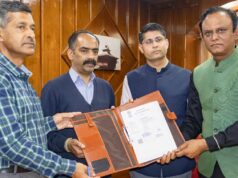The Rural Development Department of Himachal Pradesh has joined hands with Ambuja Cements Ltd. to combat the growing menace of non-recyclable plastic waste in the state. A Memorandum of Understanding (MoU) was signed between the two parties, paving the way for a sustainable solution to manage plastic waste effectively.
Under this initiative, Ambuja Cements will co-process non-recyclable plastic waste in its cement kilns. The process involves utilizing advanced technology to dispose of plastic waste in an environmentally sound manner, reducing its harmful impact on the ecosystem. This collaboration is seen as a significant step toward achieving a clean and green Himachal Pradesh.
The non-recyclable plastic waste generated from 29 operational Plastic Waste Management Units across districts like Chamba, Kangra, Shimla, and Solan will now be sent to Ambuja Cement’s plant for processing. This initiative will not only help in reducing landfill use but also curb environmental pollution caused by plastic waste.
Plastic Waste Crisis in Himachal Pradesh; The Importance of Recycling and Sustainable Disposal
Himachal Pradesh, like many states, faces mounting challenges from plastic waste, particularly non-recyclable plastics that persist in the environment for decades. Improper disposal of such waste contributes to soil and water pollution, harming biodiversity and public health.
The state has been proactive in setting up Plastic Waste Management Units, yet the increasing production and consumption of plastic demand innovative solutions. Recycling and co-processing emerge as critical strategies to address this issue. Recycling ensures the reuse of plastics while co-processing non-recyclable plastics in cement kilns minimizes their environmental footprint.
Recycling plastic waste not only conserves resources but also reduces the energy required for new plastic production. Sustainable disposal methods, such as those employed by Ambuja Cements, ensure that non-recyclable waste does not end up in landfills or waterways. These measures are vital for preserving the ecological balance of Himachal Pradesh, a state renowned for its natural beauty.
The Director of the Rural Development Department emphasized the significance of this collaboration, stating, “This partnership with Ambuja Cements is a meaningful step toward sustainable waste management practices. It ensures non-recyclable plastic waste is disposed of responsibly, contributing to the vision of a cleaner Himachal Pradesh.”
A spokesperson for Ambuja Cements reiterated the company’s commitment to sustainability, adding, “We are proud to support Himachal Pradesh in its waste management goals. This initiative reflects our dedication to fostering sustainable development.”
As Himachal Pradesh tackles its plastic waste problem, this collaboration sets an example of how public-private partnerships can address environmental challenges effectively.












